

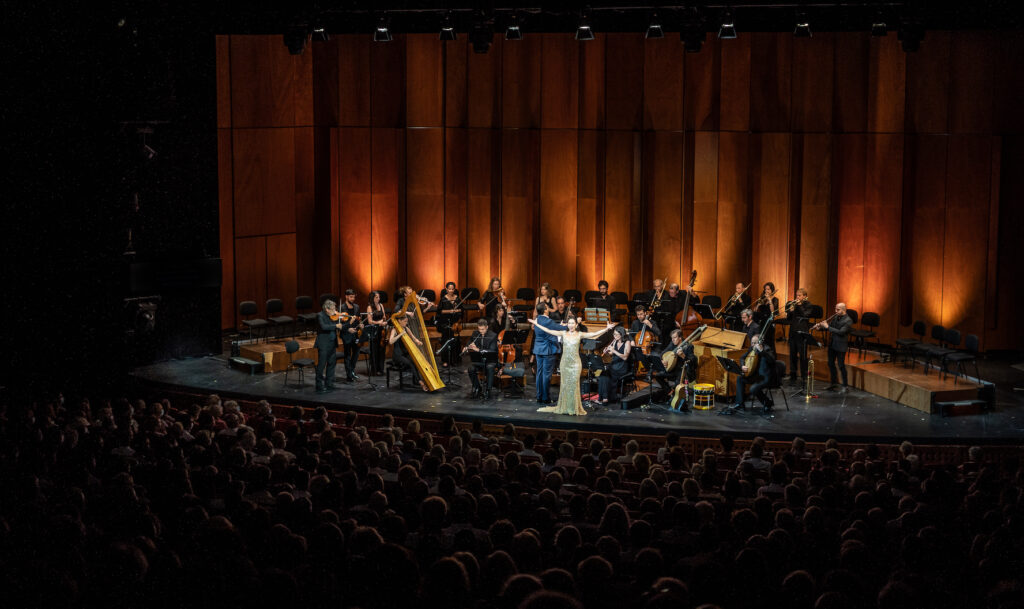
“Discreetly staged, this concert version glorifies the dramatic essence of a music that is brought to life with the trademark science and instinct of the Argentine conductor and his ensemble.”
Gilles Charlassier for Olyrix
None of this would have been possible without Monteverdi’s genius. He could transmit every slight inflection and emotion produced by the text in music, with incomparable artistry and mastery. Although the forms he was working with were so diverse, he was able to arrange musical and dramatic sequences with great coherence. By combining different stylistic elements drawn from both new (monodic) and old (polyphonic) music, he produced a mind-blowing amalgam. It was so innovative that almost four centuries later, we can still feel the same admiration and awe that struck the audience that first had the privilege of witnessing this phenomenon on 24 February 1607. There can be no doubt. The operatic genre was born with a masterpiece.
Favola in musica in a prologue and five acts.
Music by Claudio Monteverdi (1677 – 1643)
Libretto by Alessandro Striggio, first performed in 1607 at Mantova’s Palazzo Ducale.
Performance running time: approx. 2 hours and 10 minutes with intermission.
Valerio Contaldo, tenor – Orfeo
Mariana Flores, soprano – Musica, Euridice
Guiseppina Bridelli, mezzo-soprano – La Messagiera
Anna Reinhold, mezzo-soprano – Proserpina, Speranza
Alejandro Meerapfel, bass – Plutone
Salvo Vitale, bass – Caronte
Alessandro Giangrande, countertenor – Pastore, Apollo
Matteo Bellotto, bass – Pastore
Nicholas Scott, tenor – Pastore, Spirito, Eco
Leandro Marziotte, countertenor – Pastore
Julie Roset (Lanaudière, 22 July 2023) / Estelle Lefort (Nancy, 12 & 13 April 2023; Namur, 14 April 2023), soprano – Ninfa
Philippe Favette, bass – Spirito 2
Chœur de chambre de Namur
Cappella Mediterranea
Leonardo García AlarcónMusical direction
“The score of L’Orfeo reveals how innovative the work was and allows us to understand how building upon the rough sketches of his predecessors, Monteverdi developed an operatic model that would be used by generations to come. We can see how concerned he was with theatrical expression and its various modes, as well as instrumental colours and how they can be used to express certain moods, and even some aspects of staging. […]
Monteverdi was able to create such depth, thanks to his mastery of the polyphonic style. He managed to produce the imposing and terrifying effect of a double choir with five voices alone. […]
What can I say? When voices are silent, it is the music that speaks. There are no more words, just the expression of pain in an instrumental line that is supported by a bass that rises than falls in chromatic movements. […] Questions remain. The score provides us with some answers, but not all. It is the performer’s role to take the score and bring it back to life once again.”
Jérôme Lejeune
“Monteverdi fully exploits the rich colours that are typical of the Baroque period. Using a centrifugal force, he directs an explosion of light towards all points of the universe. His Orfeo is masterful. He had the good fortune of being able to work with a libretto as rich as Striggio’s. Although very little has been said about it, we can imagine how the text must have ignited the composer’s creativity. L’Orfeo forces us to confront humanity itself. If life, death, love and music are the driving forces behind humanity, L’Orfeo may be the opera that best embodies them. Only music can bring us into dialogue with the afterlife and lead us on a search for our lost loved ones. Monteverdi was the first great orchestrator. That skill that would later disappear with Venice’s public opera, which reduced orchestration to violins, a few lutes and a harpsichord. L’Orfeo represents a sort of ideal. A desire to utilize all the instruments and colours in the world.”
Leonardo García Alarcón
“The venue’s austere appearance is matched by its extraordinary acoustic features (designed by Eckhard Kahle), which extend to every inch of the hall. In this Orfeo, a simple but well-thought-out mise en espace results in a version that speaks volumes, full of revelations and mysteries.”
Martine Mergeay for La Libre
See full article
“Leonardo García Alarcón is the cornerstone of this performance. His conducting is inspired, bringing out the best in every artist. He knows his score like the back of his hand. The version he delivered was both dynamic and subtle, exploring a wide range of nuances and characters. The venue was packed to the rafters, and the audience cheered loudly, giving the artists a well-deserved standing ovation.”
Thimothée Grandjean for Crescendo Magasine
See full article
“What we witnessed was not only the merit or result of an ambition to create the ultimate performance, but also the Argentine maestro’s skill in conveying musical wonderment. Dressed as a croupier, he transformed the German orchestra into a phenomenon of magma, colour, and poetry. […] The beauty of the recitatives was as moving as the opulence of the brass.”
Rubén Amón for El confidencial
See full article
“Having collaborated for several concerts and recorded an album together, Leonardo García Alarcón and his ensembles are now seasoned veterans. Cappella Mediterranea and the Chœur de chambre de Namur are intimately familiar with one another. They know each other’s part as well as their own, and the result is a cohesive listening experience that allows us to discover or rediscover many marvels and delight in the fine details and sophistication of the writing. The tempo was energetic, and the dynamics perfectly dosed. The joyful passages and dances had an irresistible pulse, and the dramatic moments took on an astonishingly tragic dimension. For example, when Orfeo got the terrible news, the distortion of time produced a frightening effect. Nevertheless, what dominated the entire evening was clarity and light, the joy of playing and singing such a masterpiece
Matthieu Roc for Resmusica
See full article
“In the title role, Valerio Contaldo’s vocals are dense and darken at the right times with mournful distress. The grain of his voice can be gravelly, and this enhances the texture of a vocal performance that is centred on the impact of sung declamation. L’Orfeo may be the first great opera in history, but its theatrical vein runs in the music. This interpretation delivers its quintessence.”
Gilles Charlassier for Olyrix
See full article
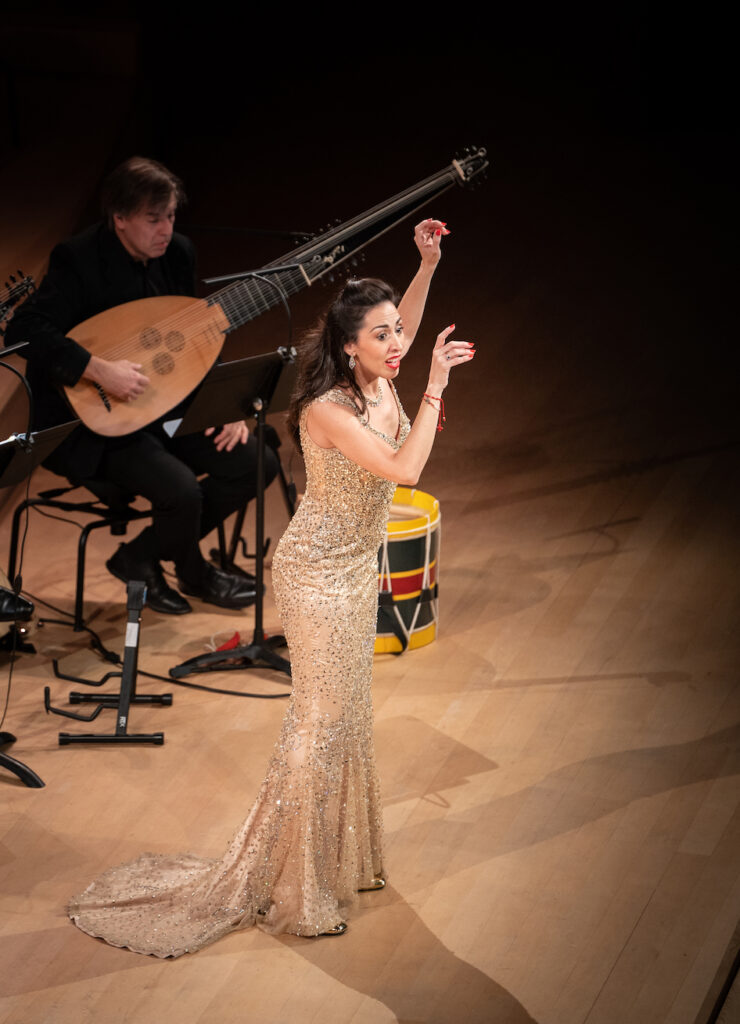
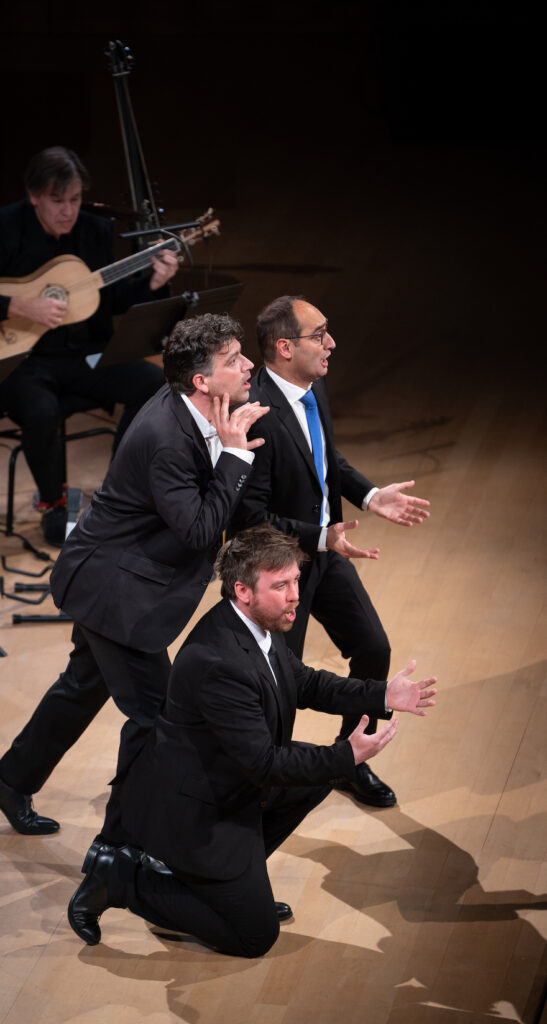
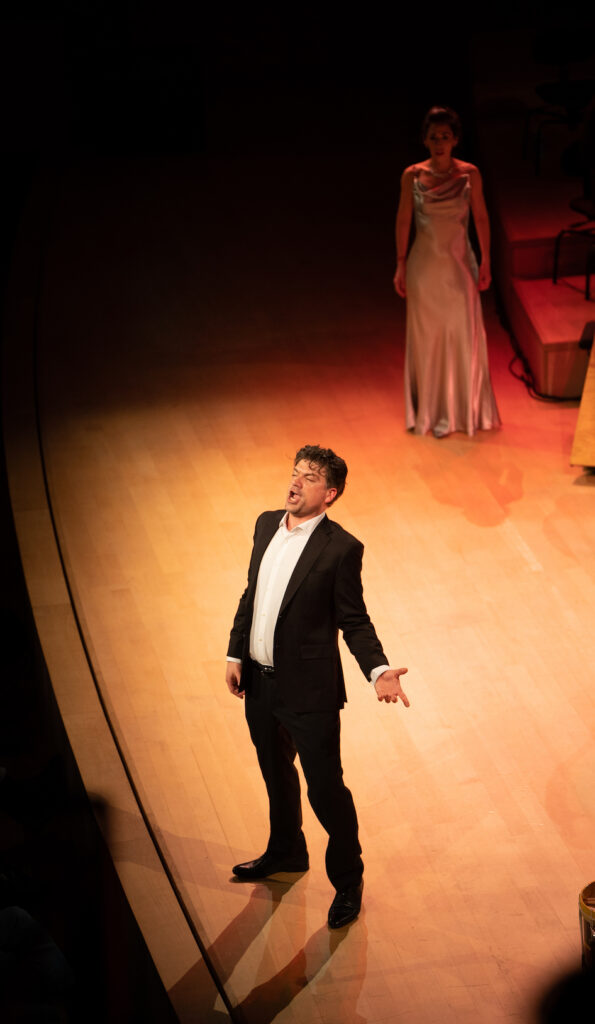
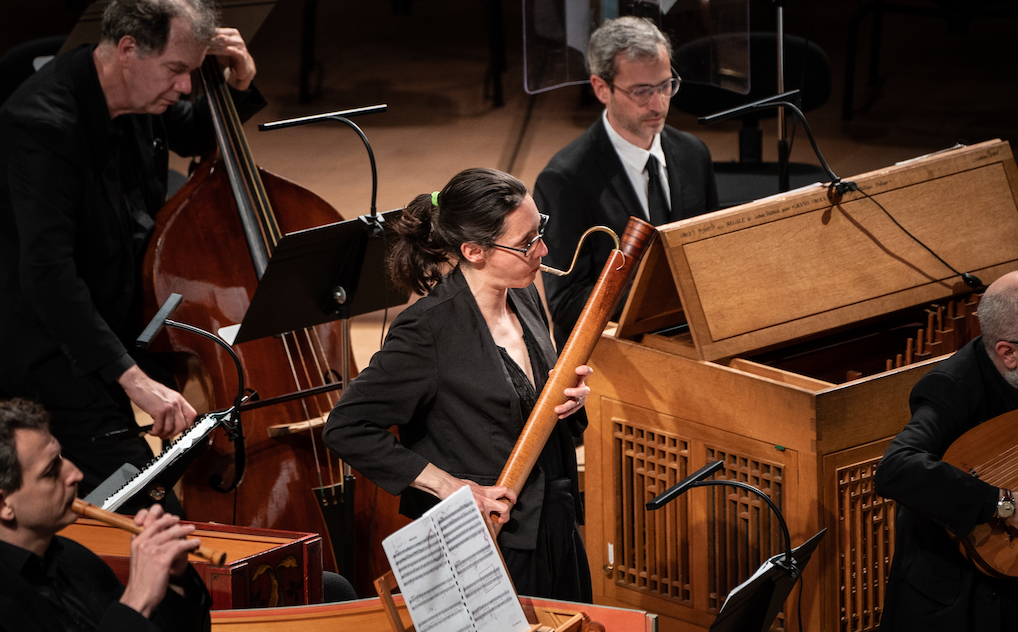
With the generous support of Aline Foriel-Destezet.
